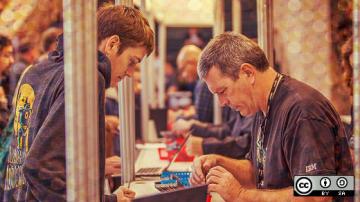The COVID-19 pandemic disturbed the work of event organizers everywhere. To slow the spread of this highly contagious virus, conferences that tend to host thousands in person faced a choice: Move entirely online, or cancel altogether. Many open source event organizers chose the latter, but not all of them.
Open Source 101 was due to be held in Austin, TX, on April 14. Instead, it hosted 1,000 attendees virtually. Later this month, the Linux Foundation will host the annual North American contingent of its Open Source Summit online. And rather than hosting DrupalCon around the world as planned, the Drupal Association will host DrupalCon Global online from July 14 - 17.
If there's any group that could move events online without missing a beat, it's the open source community. Open source teams are used to meeting online and working asynchronously to support diverse time zones.
And moving community events online could make those communities more inclusive. That's because virtual events allow anyone, anywhere in the world to attend the summits and sessions that are most relevant to them, on their own schedules.
This decreases the costs of time and money that prevent many from attending in person. Many virtual equivalents of in-person events are being offered at drastically reduced costs, if not for free. That cost reduction in tickets, coupled with not needing to spend money on flights and hotels, goes a long way towards increasing access.
Still, I can't help feeling like the lack of in-person events this year is a loss. I've worked on remote teams for more than five years, and on remote open source projects in my spare time. I am among the biggest advocates of remote work you'll find. That's the same reason why I look forward to my teams' in-person offsites each year.
That time to meet in person, celebrate achievements, decide on new visions for our projects, and socialize is crucial. It plays a key role in bridging the distance gap by helping us put names to faces and getting to know each other.
On a personal note, I've shared before how I started contributing to open source after attending a huge conference where I met several community leaders. By meeting and making connections face to face, I got plugged in much faster than if I had stumbled onto GitHub and searched through random projects. I fully support public health efforts to keep people safe, and haven't found virtual events to be a strong substitute for the informal conversations in the "hallway track."
Have you attended a virtual open source event this spring? What were the pros and cons compared to their in-person counterparts?










3 Comments